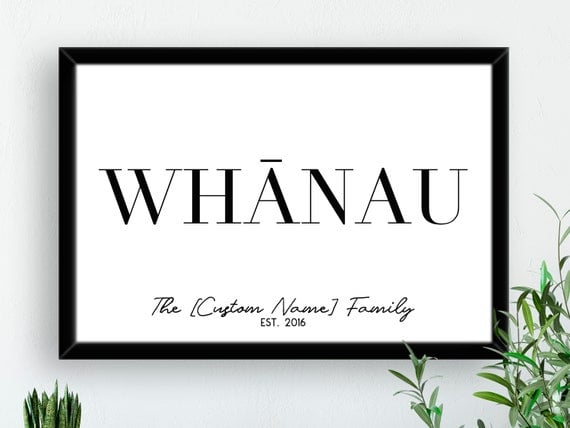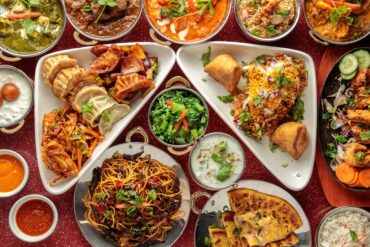A Comprehensive Dive into Maori Family Names: A Guide for Parents
Embracing the Heritage: The Significance of Maori Family Names
Hello wonderful parents! Are you curious about Maori family names and their unique place in Aotearoa’s heritage? You’re in the right place! In this guide, we’ll embark on an exciting journey through the world of Maori whanau (family) names, revealing their deep meanings, cultural significance, and how they form an integral part of identity for Maori people.
Understanding Maori Names: A Glimpse into Ancestral Roots
Maori family names, known as whanau names, are more than just labels. They’re a connection to whakapapa (genealogy), whenua (land), and the stories of the people. By learning about these names, parents can guide their children towards recognizing their roots and fostering a sense of identity that is interwoven with the history and legends of the Maori.
Through this guide, you will not just skim over the surface of Maori names. We’ll delve into how and why certain names were given, the importance of lineage and ancestry, and even touch on modern naming practices within Maori culture.
The Historical Context of Maori Names
To truly appreciate the essence of Maori family names, it is essential to understand their historical context. Traditionally, Maori did not use family surnames in the same way as western cultures. Names were often descriptive, detailing individual characteristics, events at birth, or ancestral lineage.
However, with the arrival of European settlers and the introduction of formal documents such as birth certificates, Maori were required to adopt a fixed surname. Many chose names that reflected their ancestry, while others were assigned English names or chose biblical names that were transliterated into te reo Maori (the Maori language).
Diving Deeper: The Meanings Behind Maori Names
Every Maori name carries with it a story that is ripe with meaning. Some names reflect the environment, such as a body of water or a particular land formation significant to that whanau (family), while others may recount a historical event or an ancestor’s achievements.
Understanding the origins of a name can be a powerful way for children to learn about their family history, and it’s also a fun exploration into the beautiful te reo Maori language! So, let’s gear up to explore the meanings behind some of the most well-known Maori family names.

Five Things Parents Should Know When Preparing for Maori Family Names
Giving a name can be one of the most enduring gifts you can offer your child. In-depth knowledge and sensitivity towards the Maori culture can enrich this experience. Here’s what you need to know:
- Understanding the Language: Te Reo Maori is the foundation of Maori family names. Familiarizing yourself with the basics of the language, its pronunciation, and common terms can greatly enhance your understanding of these names.
- Significance of Whakapapa: Whakapapa, or genealogy, is central to Maori identity. Engage with elders or experts in the community to ensure that the name you’re considering honours your child’s whakapapa and connects them to their ancestors and their stories.
- Tribal Affiliations: Many Maori names are deeply tied to specific iwi (tribes) or hapu (sub-tribes). It’s vital to ascertain that the use of a name is appropriate and respects its tribal origins and affiliations.
- Respecting Kaitiakitanga: Kaitiakitanga is the Maori concept of guardianship over the land and sea, and by extension, its names. When choosing a family name that references the natural environment, consider its cultural significance and your responsibilities as a kaitiaki (guardian) of that name.
- Modern Naming Conventions: The modern context of Maori culture embraces both tradition and contemporary life. Names can be creatively adapted, but it’s important to do so with cultural sensitivity and respect for their traditional meanings and sounds.
Remember, a name is not just a personal identifier but a timeless link to Aotearoa’s rich cultural landscape. Approach this beautiful tradition with reverence, and you will give your child a treasure that they will carry with pride and honour throughout their lives.
Connecting Children with Their Ancestral Roots Through Maori Names
Acquainting your child with their Maori name is a journey of cultural immersion and connecting with their ancestral roots. Storytelling can be a powerful tool for this, along with participation in Maori community events and learning activities that engage with the culture and language.
The Role of Maori Names in Today’s Society
In contemporary Aotearoa New Zealand, Maori names form an essential part of national identity, bridging the past with the present. They serve as a symbol of pride and a reminder of the unique Maori heritage. This cultural renaissance has seen a rise in the use of Maori names, as they are increasingly recognized for their historical and present-day significance.
Researching Your Maori Ancestry
Tracing your whakapapa can be a heartwarming and enlightening process. Start by engaging with family members, visiting ancestral lands, and utilizing resources such as the Maori Land Court or online databases dedicated to genealogy. These steps can build a foundation for your child’s understanding and appreciation of their name and lineage.
Additional Resources and Learning
For those seeking to deepen their understanding, a variety of resources are at your disposal. Look towards Maori-focused publications, cultural centres and libraries, and online platforms offering courses in Te Reo Maori and Maori culture. Embrace the learning journey together with your family, strengthening your bonds and enriching your collective identity.
See more great Things to Do with Kids in New Zealand here. For more information see here
Disclaimer
The articles available via our website provide general information only and we strongly urge readers to exercise caution and conduct their own thorough research and fact-checking. The information presented should not be taken as absolute truth, and, to the maximum extent permitted by law, we will not be held liable for any inaccuracies or errors in the content. It is essential for individuals to independently verify and validate the information before making any decisions or taking any actions based on the articles.




